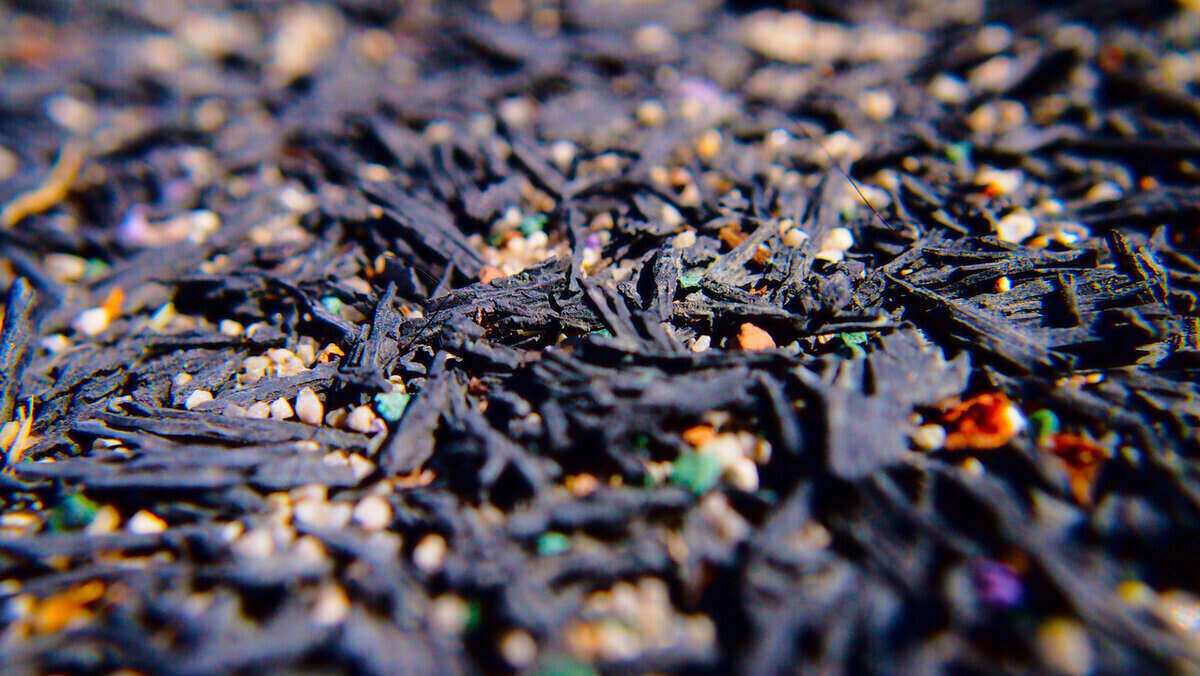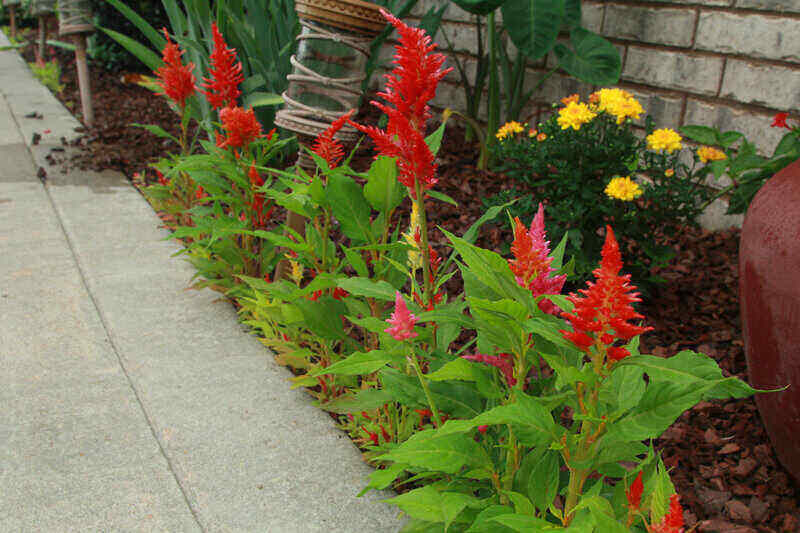
Rubber mulch has gained popularity as a landscaping and gardening solution due to its durability and eco-friendly nature. However, like any product, it comes with its benefits and drawbacks. This post explores the advantages and disadvantages of rubber mulch, comparing it to traditional options like wood mulch. By the end, you’ll have a comprehensive understanding of whether this material suits your needs.
Benefits of Rubber Mulch

Durability and Longevity
Rubber mulch, often made from recycled rubber like black rubber fill for tires, is highly durable. Unlike wood mulch, which decomposes over time, rubber mulch can last for several years without significant degradation. This longevity reduces the need for frequent replacements, saving time and money.
Key Features of Durability:
- Resists decomposition
- Withstands harsh weather conditions
- Requires less frequent replacement
Weed Suppression
Rubber mulch effectively suppresses weed growth by creating a dense barrier that limits sunlight reaching the soil. This feature helps maintain a clean and organized garden.
Water Permeability
A common question is, can water seep through rubber mulch? Yes, it allows water to drain through, ensuring the soil underneath remains hydrated. This characteristic helps plants thrive while minimizing water pooling on the surface.
Safety for Playgrounds
Rubberized mulch for playgrounds is an excellent option due to its soft texture, providing a cushioned surface that minimizes injuries from falls. Its non-toxic variants ensure safety for children.
Eco-Friendly Option
Recycled rubber mulch repurposes old tires, reducing waste in landfills. This recycling process transforms materials that would otherwise contribute to environmental pollution into something useful.
Drawbacks of Rubber Mulch
Initial Cost
One of the main drawbacks is the higher initial cost compared to wood mulch. Rubber mulch prices can vary, with premium products costing more than traditional organic options. For budget-conscious consumers, this may be a significant concern.
Potential Environmental Concerns
While recycled rubber mulch reduces waste, concerns remain about microplastics and chemicals leaching into the soil. Questions like does rubber mulch cause cancer? and is rubber mulch toxic? arise due to the materials used in its production. Studies indicate that high-quality, non-toxic variants minimize these risks, but users should research before purchasing.
Limited Aesthetic Appeal
Rubber mulch colors include black, red, green, and blue. While these options suit different preferences, they may not achieve the natural look provided by wood mulch. Some users consider rubber mulch’s appearance less appealing in landscaping.
Comparison of Rubber Mulch Colors:
| Color | Suitable For | Popularity Level |
|---|---|---|
| Black Rubber Mulch | Modern Landscapes | High |
| Red Mulch Rubber | Playgrounds, Gardens | Medium |
| Green Rubber Mulch | Natural-Looking Areas | Low |
| Blue Mulch Rubber | Creative Spaces | Low |
Heat Retention
Rubber mulch retains more heat than organic mulch, potentially harming plants during extreme heat conditions. Gardeners in hot climates should consider this factor.
Rubber Mulch Versus Wood Mulch
Longevity and Maintenance
Rubber mulch vs wood mulch is a frequent debate among gardeners. Rubber mulch outlasts wood mulch significantly, making it a low-maintenance option. On the other hand, wood mulch decomposes and enriches the soil, providing additional nutrients.
Comparison Table:
| Feature | Rubber Mulch | Wood Mulch |
|---|---|---|
| Longevity | Up to 10 years | 1-2 years |
| Nutrient Addition | None | Adds nutrients |
| Maintenance | Low | High |
| Cost | Higher | Lower |
Safety and Applications
For playgrounds, rubberized mulch offers better cushioning compared to wood chips. However, wood mulch is often preferred for gardening due to its organic benefits.
Common Questions About Rubber Mulch
Why Does Decorative Bark Smell?
Decorative bark, a type of organic mulch, produces a distinct smell during decomposition. Rubber mulch, by contrast, does not emit such odors.
How Long Does Rubber Mulch Last?
Rubber mulch can last up to 10 years with minimal maintenance. Its durability is one of its primary selling points.
Is Rubber Mulch Safe?
High-quality, non-toxic rubber mulch is considered safe for landscaping and playgrounds. However, buyers should ensure the product meets safety standards to avoid potential health risks.
Why Does Mulch Smell Like That?
Traditional mulch emits a smell due to microbial activity during decomposition. Rubber mulch does not decompose, so it typically remains odor-free.
Can Water Seep Through Rubber Mulch?
Yes, water can seep through shredded rubber mulch, ensuring soil hydration and preventing waterlogging.
Applications of Rubber Mulch
Landscaping
Rubber landscape mulch is ideal for decorative gardens and pathways, offering a clean and modern look.
Playgrounds
Rubberized mulch for playgrounds provides a safe surface for children, reducing the impact of falls and injuries.
Commercial Use
Businesses use rubber mulch in areas requiring low-maintenance landscaping, such as parking lot islands and public spaces.
Rubber Mulch Problems to Consider
While rubber mulch has many benefits, it is not without its challenges. Concerns include heat retention, potential chemical leaching, and higher upfront costs. Understanding these issues helps users make informed decisions.
Summary of Problems:
- Heat retention in hot climates
- Chemical concerns in low-quality products
- Higher initial investment
Choosing the Right Mulch for Your Needs
Selecting between rubber mulch and traditional options depends on your specific requirements. For long-lasting, low-maintenance solutions, rubber mulch is an excellent choice. However, for nutrient enrichment and natural aesthetics, wood mulch remains a strong contender.
Comparison Chart:
| Factor | Rubber Mulch | Wood Mulch |
|---|---|---|
| Cost Effectiveness | High over time | Low initial cost |
| Aesthetics | Artificial look | Natural look |
| Environmental Impact | Reduces landfill waste | Biodegradable |
| Safety | Cushioned for falls | Less cushioning |
Rubber mulch is a versatile option that meets various landscaping needs. By weighing its pros and cons, you can determine if this material aligns with your preferences and requirements. Whether used in playgrounds, gardens, or commercial spaces, rubber mulch offers unique advantages worth considering.
